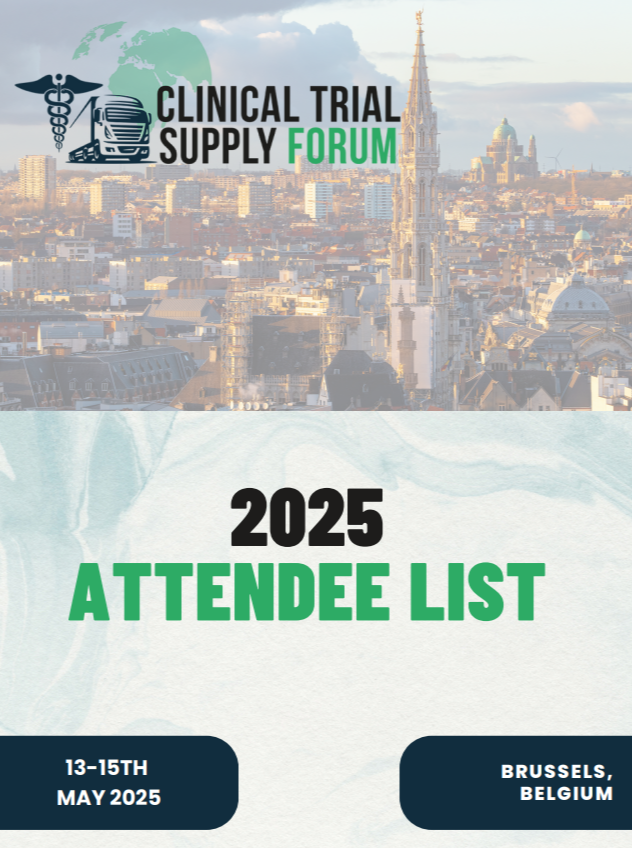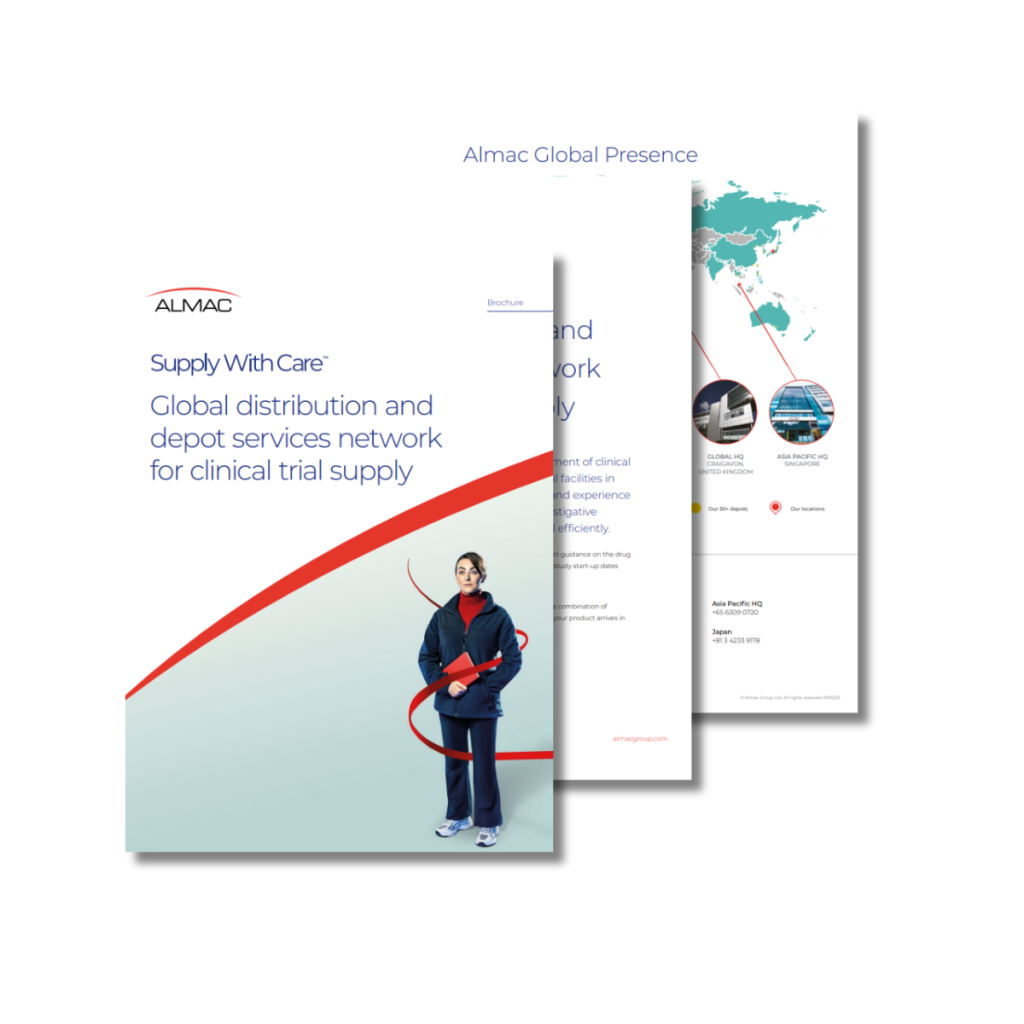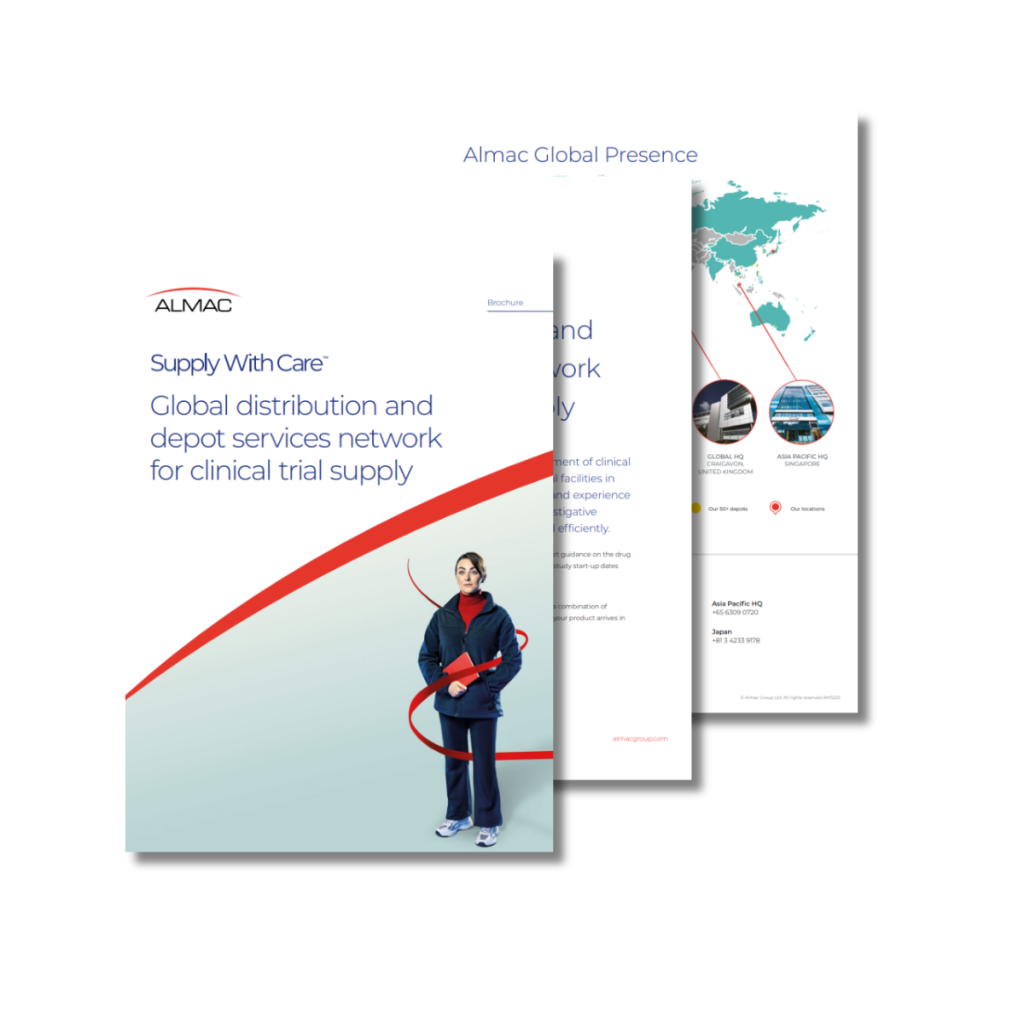Top Featured

2025 Attendee List
Wondering who attended the Clinical Trial Supply Forum 2025? Download our Attendee List and find out.
Join us next year to collaborate with senior industry leaders to successfully build a supply chain that is agile, sustainable and built around patient needs!

Get Your Copy Of The Sponsorship & Exhibition Prospectus
Are you interested in sponsoring Clinical Trial Supply Forum 2025? Download our 2025 prospectus and see how you can be a part of our event. We have a variety of flexible sponsorship packages, designed to align with your unique goals.
The Clinical Trial Supply Forum 2026 Draft Agenda
The Clinical Trial Supply Forum is a platform where Clinical Trial Supply professionals on all seniority levels gather to exchange exclusive insights, establish valuable connections and collaboratively tackle industry challenges.
![Infographic | Your Sustainability Improvement To-Do List [updated Oct 2025] Infographic | Your Sustainability Improvement To-Do List [updated Oct 2025]](https://eco-cdn.iqpc.com/eco/images/event_content/FfPNQyhj4E4ZQoxrpLWqn4MzcmmoiSMR84xKmWqS.png)
Infographic | Your Sustainability Improvement To-Do List [updated Oct 2025]
Sustainability is no longer a choice, it’s a necessity in clinical trial supply chains. With increasing regulations, growing environmental responsibilities, and the push for more efficient, patient-centric operations, it’s time to take action. The Sustainability Improvement To-Do List is your clear, step-by-step guide to integrating sustainability into every stage of your supply chain, with a regional breakdown of sustainability initiatives across the EU, UK, and US.
Download to learn more about:
- Carbon Footprint Assessment: Measure emissions across production, transportation, and energy use to pinpoint areas for improvement.
- Carbon Offsetting Strategies: Balance unavoidable emissions through renewable energy investments and reforestation initiatives.
- Energy Efficiency Upgrades: Optimise machinery, reduce waste, and implement energy-saving technologies.
- Sustainable Transport Solutions: Lower emissions with low-emission vehicles, optimised delivery routes, and shipment consolidation.
Optimising Global Clinical Trial Supply Solutions
This report highlights key considerations for successful drug development, including accelerating timelines, controlling costs, and ensuring quality assurance. It emphasises the importance of selecting an experienced outsourcing partner for managing clinical supply aspects such as packaging, labelling, and distribution. The report outlines best practices for early planning to optimise supply operations, predict challenges, and embed effective quality management systems. With over 30 years of expertise, Almac provides innovative solutions to meet the needs of pharmaceutical and biotech companies, ensuring the best outcomes for clinical studies and patients.

ALMAC - Global distribution and depot services network for clinical trial supply
Global Distribution and Depot Services Network for Clinical Trial Supply
ALMAC understands the challenges of managing clinical supply, particularly for international trials. Their global facilities in strategic regions, combined with local insight and experience, ensure compliance with various regulatory requirements for efficient and effective supply to sites. With experience shipping to over 110 countries, ALMAC offers expert guidance on the drug shipment process from the start of each protocol, contributing to faster study start-up dates and eliminating unnecessary delays. Their planning foresight and optimal distribution strategy, including direct-to-site shipments and regional depots, guarantee that products arrive in the right place, at the right time, and in the right condition.



